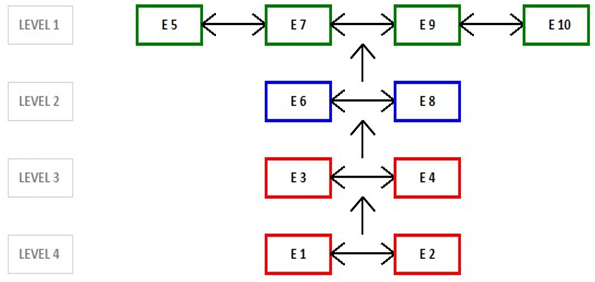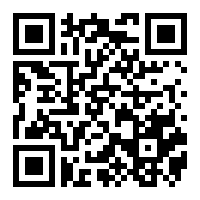Strategic Pathways to Educational Excellence: An ISM Analysis of Leadership, Curriculum, and Service Quality in Muhammadiyah Schools Amid Society 5.0
DOI:
https://doi.org/10.23917/ijolae.v7i2.9705Keywords:
educational ecosystem, excellence schools, manajemen excellence, interpretive structural modeling, inclusive schools, sustainable schoolsAbstract
This research aims to analyze the determining factors of Muhammadiyah school management excellence in Society 5.0 using the Interpretive Structural Modeling (ISM) approach. School excellence is an important factor in maintaining competitiveness and improving the quality of education. To achieve school excellence, it is important to understand the factors that influence school excellence. The method used in this study is qualitative descriptive with the Interpretive Structural Modeling (ISM) approach, a system analysis method based on a conceptual framework to determine priority choices and connect important factors in a complex system of society 5.0 to create inclusive and sustainable schools. The key factors determining the excellence of Muhammadiyah schools based on the results of the ISM analysis are Principal Leadership, Quality of Teachers and Education Personnel, School Services, and Learning Curriculum. The key factor determining school excellence will support quality school management, thereby producing quality graduates.
Downloads
References
Adhantoro, M. S., Gunawan, D., Prayitno, H. J., Riyanti, R. F., Purnomo, E., & Jufri-ansah, A. (2025). Strategic technological innovation through ChatMu: transfor-ming information accessibility in Mu-hammadiyah. Frontiers in Artificial Intel-ligence, 8(February), 1–11. https://doi.org/10.3389/frai.2025.1446590
Amran. (2015). Faktor Penentu Keberhasilan Pengelolaan Satuan Pendidikan. Manajer Pendidikan, 9(2), 185–196.
Asmi, E., & Sahuri, C. (2013). Pelayanan Sekolah untuk Meningkatkan Kualitas Peserta Didik. Jurnal Kebijakan Publik, 4(1), 51–56.
Awwaliyah, R. (2019). Pendekatan Pengelo-laan Kurikulum Dalam Menciptakan Sekolah Unggul. INSANIA : Jurnal Pemikiran Alternatif Kependidikan, 24(1), 35–52.
Casnan, Purnawan, Triwahyuni, H., & Farhan Wahyu Fuadi, Evan Firmansyah, I. (2021). Analisis Kendala Pembelajaran Daring PAUD dan SD dengan Pendeka-tan Interpretative Structural Modeling (ISM). Jurnal Pelita PAUD, 6(1), 33–40.
Dalyono, B., & Agustina, D. A. (2016). Guru Profesional sebagai Faktor Penentu Pen-didikan Bermutu. Polines, 2(2), 13–22.
Darwanto, Khasanah, M., & Putri, A. M. (2021). Penguatan Literasi, Numerasi, dan Adaptasi Teknologi pada Pembelaja-ran di Sekolah. Jurnal Eksponen, 11(2), 25–35.
Firmawati, Yusrizal, & Usman, N. (2017). Pengaruh Kepemimpinan Kepala Sekolah dan Motivasi Kerja Terhadap Kinerja Gu-ru. Jurnal Magister Administrasi Pendi-dikan, 5(3), 167–171.
Fitriansyah, R., Fatinah, L., & Syahril, M. (2020). Critical Review: Professional Development Programs to Face Open Educational Resources in Indonesia. In-donesian Journal on Learning and Ad-vanced Education (IJOLAE), 2(2), 109–119. https://doi.org/10.23917/ijolae.v2i2.9662
Fuadi, D., Harsono, H., Syah, M. F. J., Susi-lo, A., Suhaili, S., & Wahyono, B. (2021). Self-Governance: Internationali-zation Management of Distinctive Higher Education Towards The World Class University. Indonesian Journal on Lear-ning and Advanced Education (IJOLAE), 3(2), 96–113. https://doi.org/10.23917/ijolae.v3i2.11754
Hamdi, M. M. (2020). Evaluasi Kurikulum Pendidikan. INTIZAM : Jurnal Manaje-men Pendidikan Islam, 4(1), 66–75.
Hasnadi, H. (2021). Total Quality Manage-ment: Konsep Peningkatan Mutu Pendi-dikan. SAP (Susunan Artikel Pendidikan), 6(2), 6(2), 11–19.
Herlandy, P. B., Sholihat, N., Pahmi, P., Ma-jid, N. W. A., Azman, M. N. A., & Ulwan, A. N. (2024). Developing a Digi-tal Module for Integrating Islamic and Muhammadiyah Values with Pancasila in Vocational Education: A Sadiman Me-thod Approach. Indonesian Journal on Learning and Advanced Education (IJO-LAE), 6(2), 183–195. https://doi.org/10.23917/ijolae.v6i2.23208
Hidayat, E. (2014). Faktor-Faktor yang Mempengaruhi Mutu Sekolah (Pengaruh dari Faktor Kinerja Mengajar Guru dan Pemanfaatan Sumber Belajar). Jurnal Administrasi Pendidikan, 21(1), 81–88.
Hidayat, M. L., Abdurahman, S. G., Astuti, D. S., Anif, S., & Zannah, F. (2025). Pi-lot Study of Digital Competency Map-ping of Indonesian Preservice Teachers: Rasch Model Analysis. Indonesian Jour-nal on Learning and Advanced Education (IJOLAE), 7(1), 100–116. https://doi.org/10.23917/ijolae.v7i1.23935
Hidayat, Permata, S., & Nurhikmahyanti, D. (2014). Peran Tenaga Administrasi Seko-lah dalam Meningkatkan Mutu Pelayanan Sekolah di MAN 1 Kota Mojokerto. Jur-nal Inspirasi Manajemen Pendidikan, 4(4), 152–162.
Julaeha, S. (2019). Problematika Kurikulum dan Pembelajaran Pendidikan Karakter. Jurnal Penelitian Pendidikan Islam, 7(2), 157–182.
Kumari, H. M. L. (2021). A Study on Distri-buted Leadership Practices and its Impact on Teaching and Learning. PUPIL: In-ternational Journal of Teaching, Educa-tion and Learning, 5(1), 55–72.
Mentesogullari, E. (2023). Total Quality Ma-nagement in Education: A Strategic Ap-proach for Continuous Improvement and Success. International Journal of Social Sciences, 7(28), 184–198.
Nange, M. M., & Mkulu, D. G. (2020). As-sessment on the Application of Total Quality Management (TQM) in Impro-ving Students’ Learning and Academic Performance in Government Secondary Schools in Manyoni District-Singida, Tanzania. Journal of Humanities and Education Development (JHED), 2(6), 464–480.
Newman, M. (2013). Conceptualizations of School Leadership among High School Principals in Jamaica. Journal of Interna-tional Education and Leadership, 3(3), 1–16.
Nurcahyani, N. A. (2015). Pelaksanaan Hu-bungan Masyarakat dalam Membangun Networking di SMK Negeri 1 Surabaya. Polines, 6(2), 1–11.
Poerwanti, E. (2021). Pemetaan Nilai Keunggulan Sekolah Dasar di Kota Ma-lang. Jurnal Pemikiran Dan Pengemban-gan Sekolah Dasar, 9(1), 84–93.
Purbonuswanto, W., Sutama, S., Supriadi, D., Adnan, M. B., & Waluyo, M. (2024). Transforming Educational Leadership: Digital Applications of Ki Hajar Dewan-tara’s Leadership Principles. Indonesian Journal on Learning and Advanced Edu-cation (IJOLAE), 6(3), 422–437. https://doi.org/10.23917/ijolae.v6i3.23839
Rahmiaty, R., Kamarullah, K., Rahman, F., Haekal, M., & Hadi, W. (2025). Moder-nizing Higher Education in India: Quality Dimensions for Sustainable and Impact-ful Education. Indonesian Journal on Le-arning and Advanced Education (IJO-LAE), 7(2), 272–294. https://doi.org/10.23917/ijolae.v7i2.8688
Rizkita, K., & Supriyanto, A. (2020). Kompa-rasi kepemimpinan pendidikan di Indone-sia dan Malaysia dalam upaya peningka-tan mutu pendidikan. Jurnal Akuntabilitas Manajemen Pendidikan, 8(2), 155–164.
Sepriyanti, N. (2012). Guru Profesional Ada-lah Kunci Mewujudkan Pendidikan Ber-kualitas. Jurnal Al-Ta’lim, 1(1), 66-73, 1(1), 66–73.
Setiati, S. (2014). Pengaruh Kepemimpinan Kepala Sekolah, Motivasi Kerja, dan Bu-daya Sekolah terhadap Kinerja Guru. Jurnal Pendidikan Teknologi Dan Keju-ruan, 22(2), 200–207.
Sormin, D. (2017). Manajemen Kepala Seko-lah dalam Meningkatkan Mutu Pendi-dikan di SMP Muhammadiyah 29 Pa-dangsidimpuan. Al-Muaddib : Jurnal Il-mu-Ilmu Sosial & Keislaman, 2(1), 129–146.
Susetyo, B., Soetantyo, S. P., Sayuti, M., & Nur, D. (2022). The Innovation and the Transformation of Indonesian Schools Accreditation Management System. In-donesian Journal on Learning and Ad-vanced Education (IJOLAE), 4(2), 128–139. https://doi.org/10.23917/ijolae.v4i2.17113
Wani, I. A., & Mehraj, H. K. (2014). Total Quality Management in Education: An Analysis. International Journal of Hu-manities and Social Science Invention, 3(6), 71–78.
Wijaya, C., Hidayat, R., & Rafida, T. (2019). Manajemen Sumberdaya Pendidik dan Tenaga Kependidikan (Abdillah (ed.)). Lembaga Peduli Pengembangan Pendi-dikan Indonesia (LPPPI).
Yuhasnil, Y. (2020). Manajemen Kurikulum dalam Upaya Peningkatan Mutu Pendi-dikan. Journal Of Administration and Educational Management (ALIGN-MENT), 3(2), 214–221.
Yurni, S., & Bakti, H. E. (2016). Pengem-bangan Kurikulum di Sekolah Dalam Upaya Meningkatkan Mutu Pendidikan. Jurnal Universitas Muhammadiyah Pa-lembang Sumatera Selatan, 5(3), 293–306

Submitted
Accepted
Published
Issue
Section
License
Copyright (c) 2025 Muhammad Samsudin, Ratna Sari, Casnan, Azis Ilham Hanafi

This work is licensed under a Creative Commons Attribution 4.0 International License.












